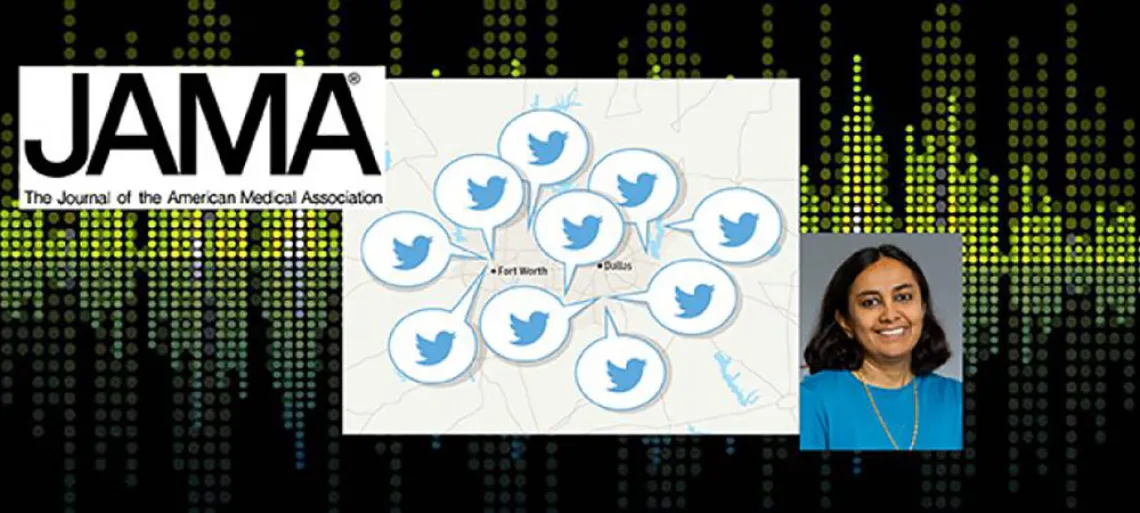Sudha Ram’s Big Data Research Rejects Twitter as Frivolous

Within moments of the explosions at the finish line of the 2013 Boston marathon, Twitter messages began appearing describing the incident and casualties—some preceded the alerts from Massachusetts public health and emergency agencies sent to emergency departments (EDs) in the area (Cassa CA et al. PLoS Curr. Published online July 2, 2013).
The prospect of using such real-time data to provide early public health warnings—possibly within minutes—and timely alerts to hospitals about oncoming surges or emerging public health concerns has led to a new wave of studies probing ways to use Twitter in medicine and public health.
Infectious disease specialists and public health agencies were the first to mine social media data streams for early signs of cholera and influenza outbreaks (Chunara R, Andrews JR, Brownstein JS. Am J Trop Med Hyg. 2012;86[1]:39-45 and Shaman J et al. Nat Commun. 2013;4:10). At least 2 cities are already using social media data to monitor foodborne illness (Kuehn BM. JAMA. 2014;312[2]:117-118).
Now, scientists are finding that Twitter data—especially when combined with other real-time data streams like environmental sensors or data from fitness apps—also have the potential to provide early warnings about chronic disease, emergencies, adverse drug reactions, or even safety problems like prescription drug misuse.
Enormous amounts of real-time data are generated each day as people use mobile devices and apps like Twitter. In fact, the average US resident now spends about 3 hours each day using a mobile device, according to analysts at Yahoo’s Flurry Insights (http://bit.ly/1NzuROH).
“We live in the era of big data,” said Sudha Ram, PhD, professor of management information systems and computer science at the University of Arizona, Tucson, whose research focuses on predicting asthma surges. “We have tons of data pouring out from everywhere. Why not look at [asthma surges] in a very different way and bring other data to bear?”
Ram’s research focuses on extracting health signals from this fire hose of data using data mining techniques. In Twitter, Ram has found a particularly rich vein of information.
“A lot of people dismiss Twitter as frivolous, but my work has shown there are a lot of nice signals you can get out of Twitter if you know how to extract them,” Ram said.
She and her colleagues discovered many tweets about trouble breathing, forgetting asthma medications, receiving calls from teachers about a child’s asthma attack, or cutting exercise short because of asthma symptoms (Ram S et al. IEEE J Biomed Health Inform. 2015;19[4]:1216-1223).
Continue reading this article at http://goo.gl/3n6ptQ
Twitter image courtesy of JAMA
JAMA The Journal of the American Medical Association

